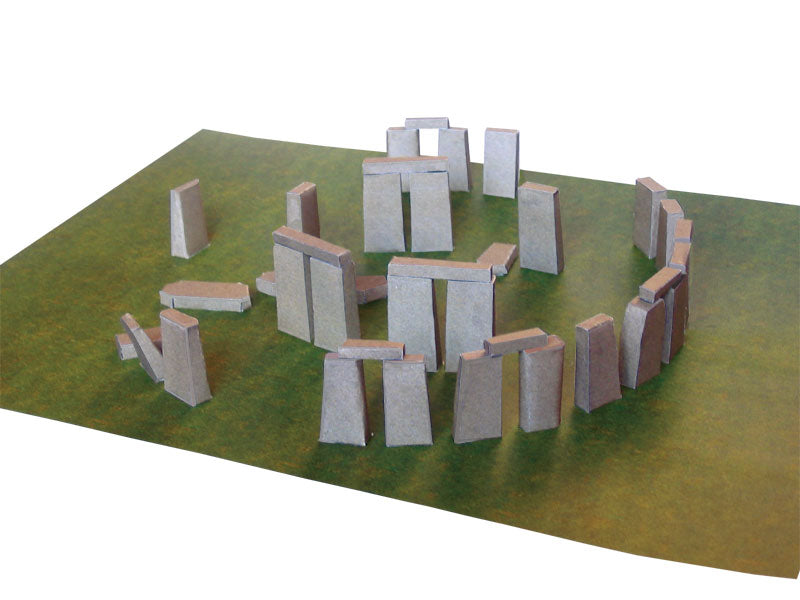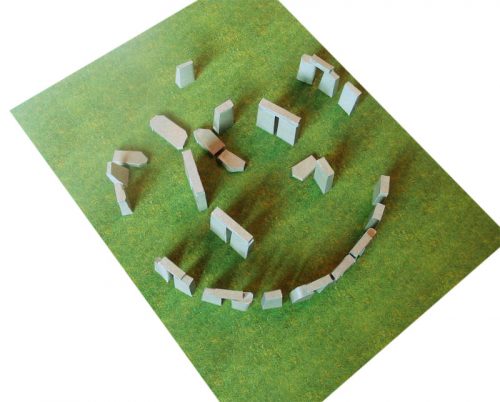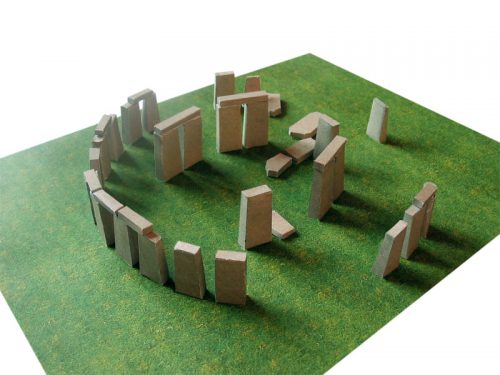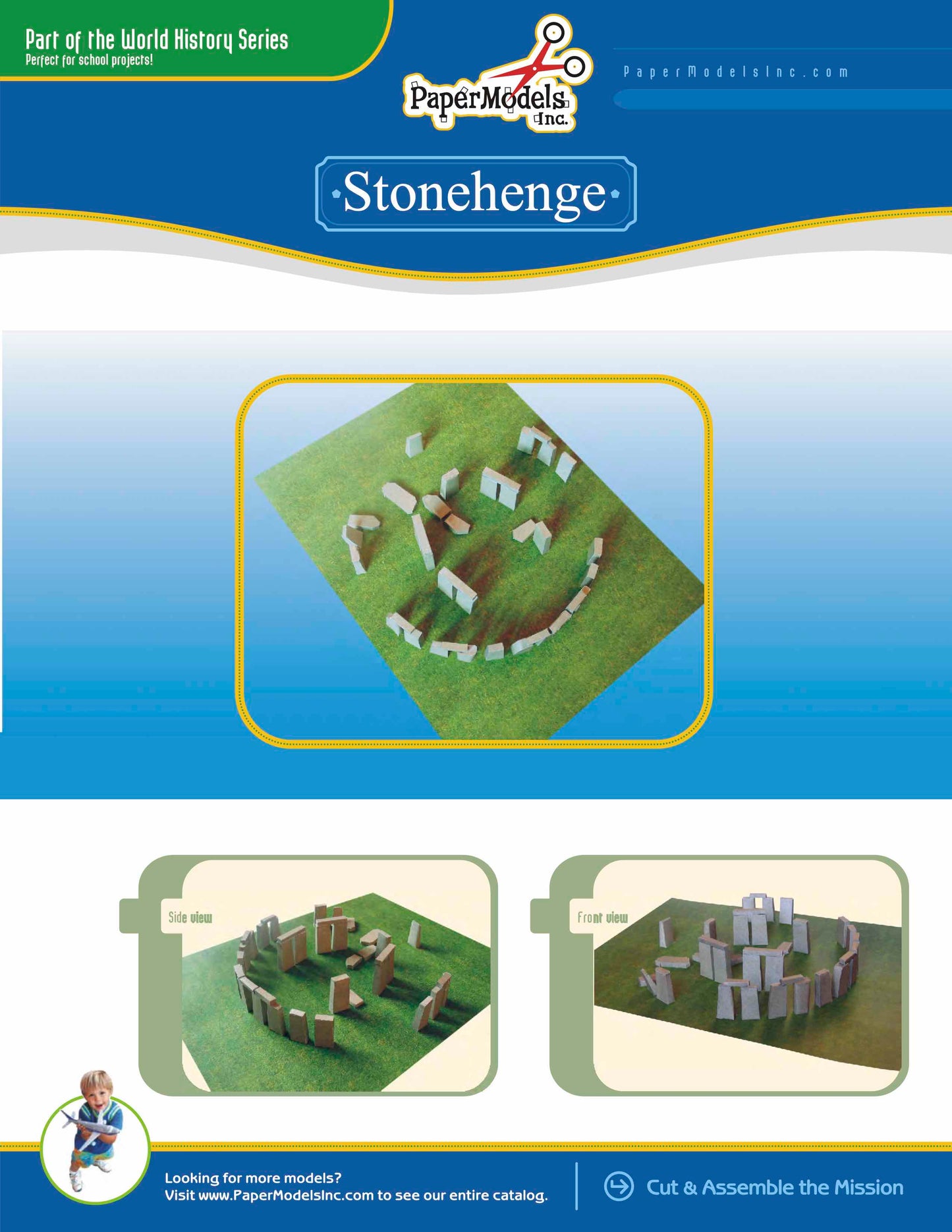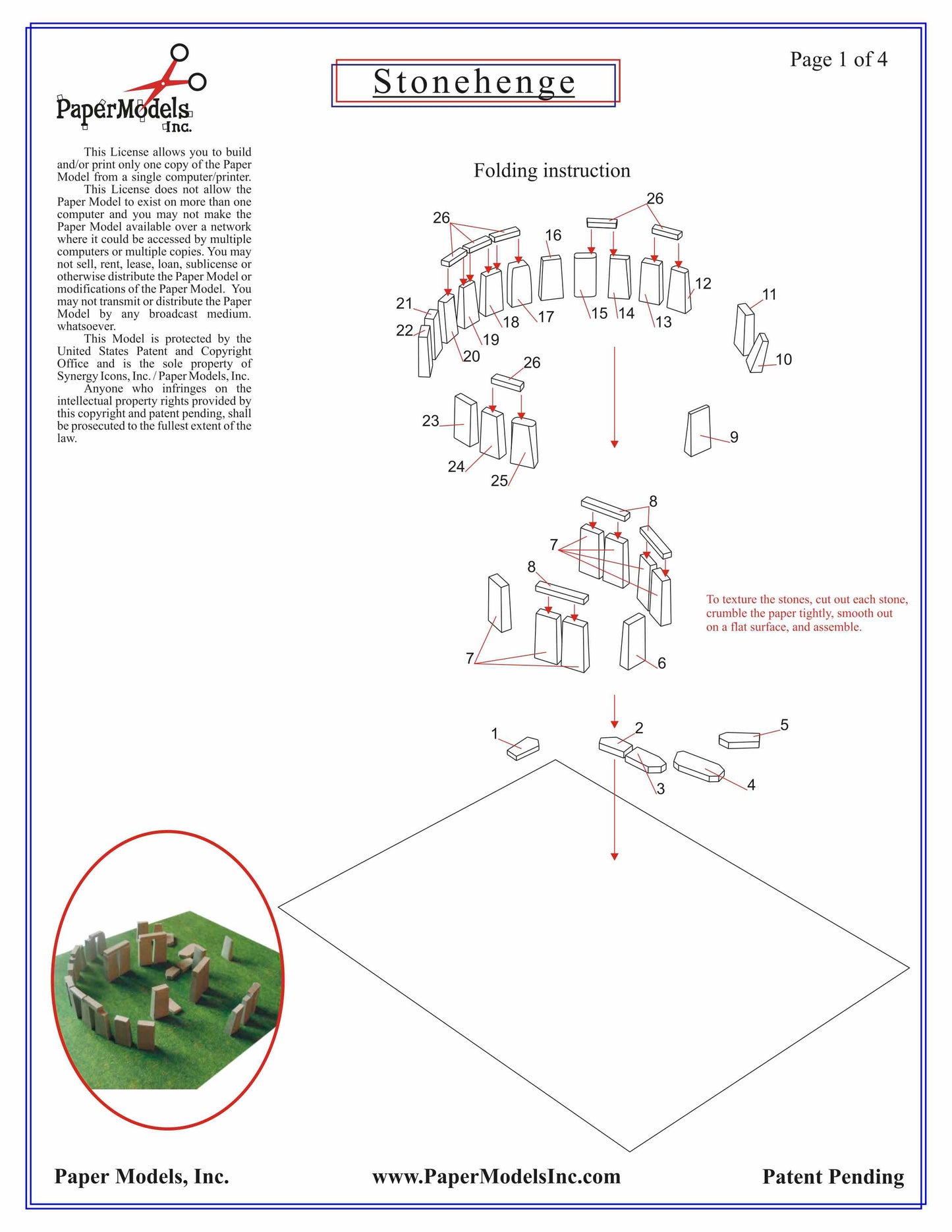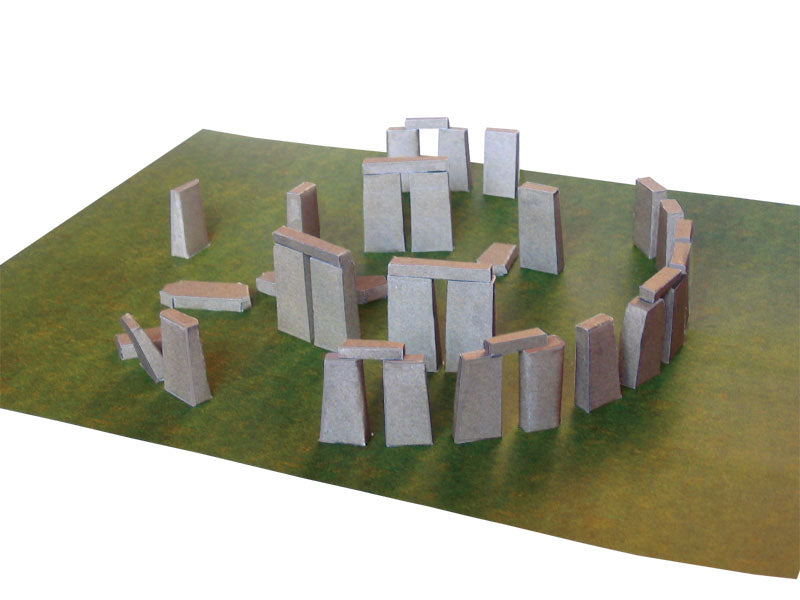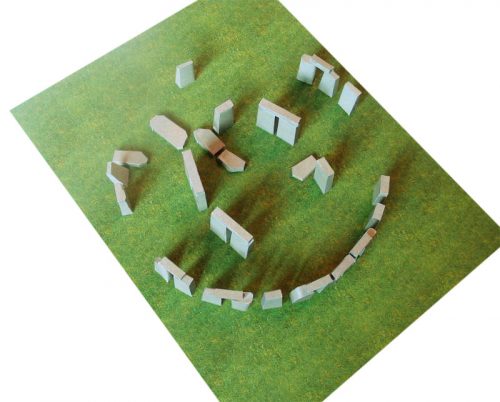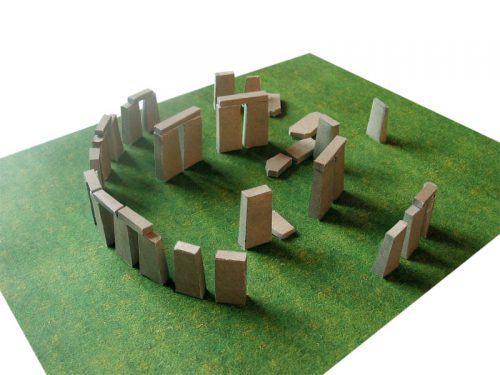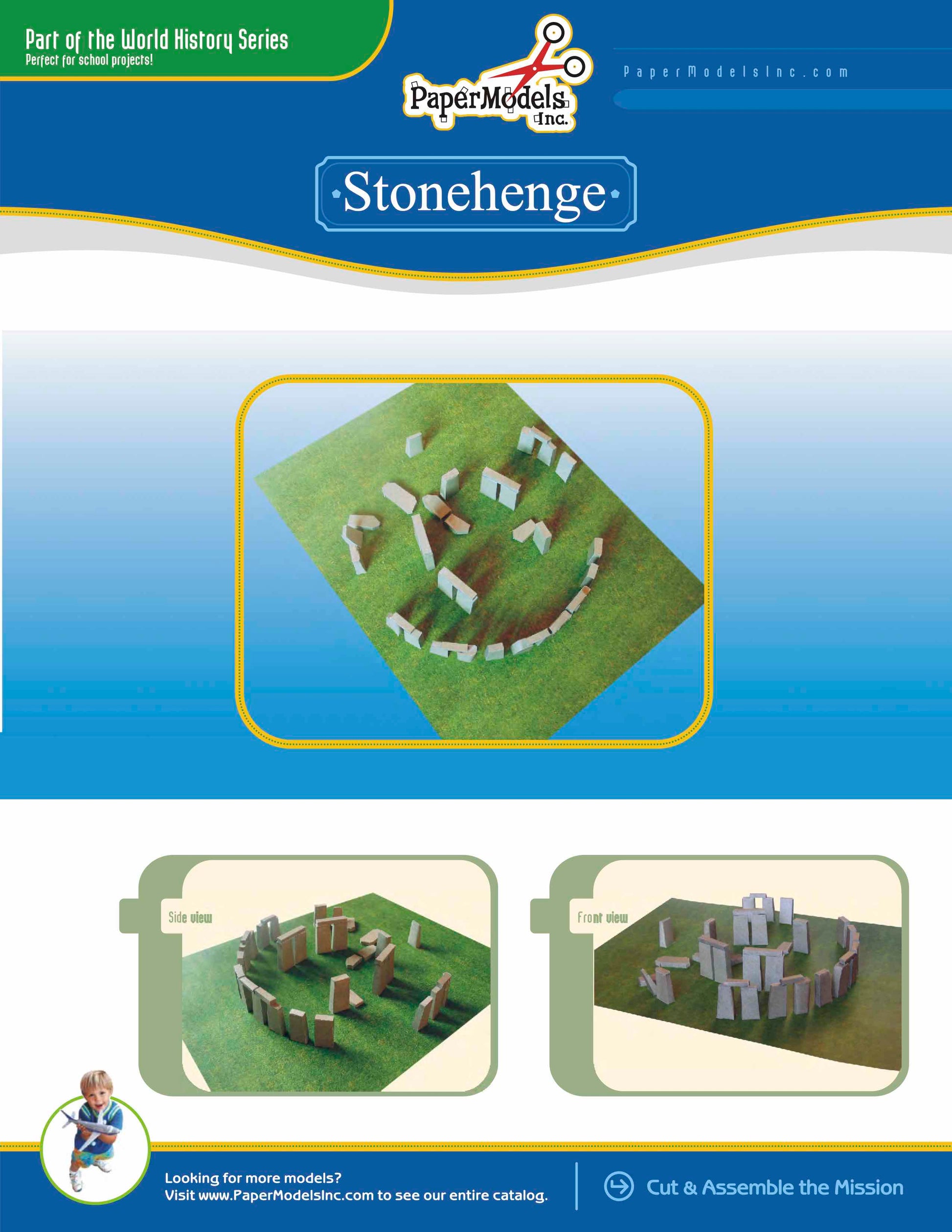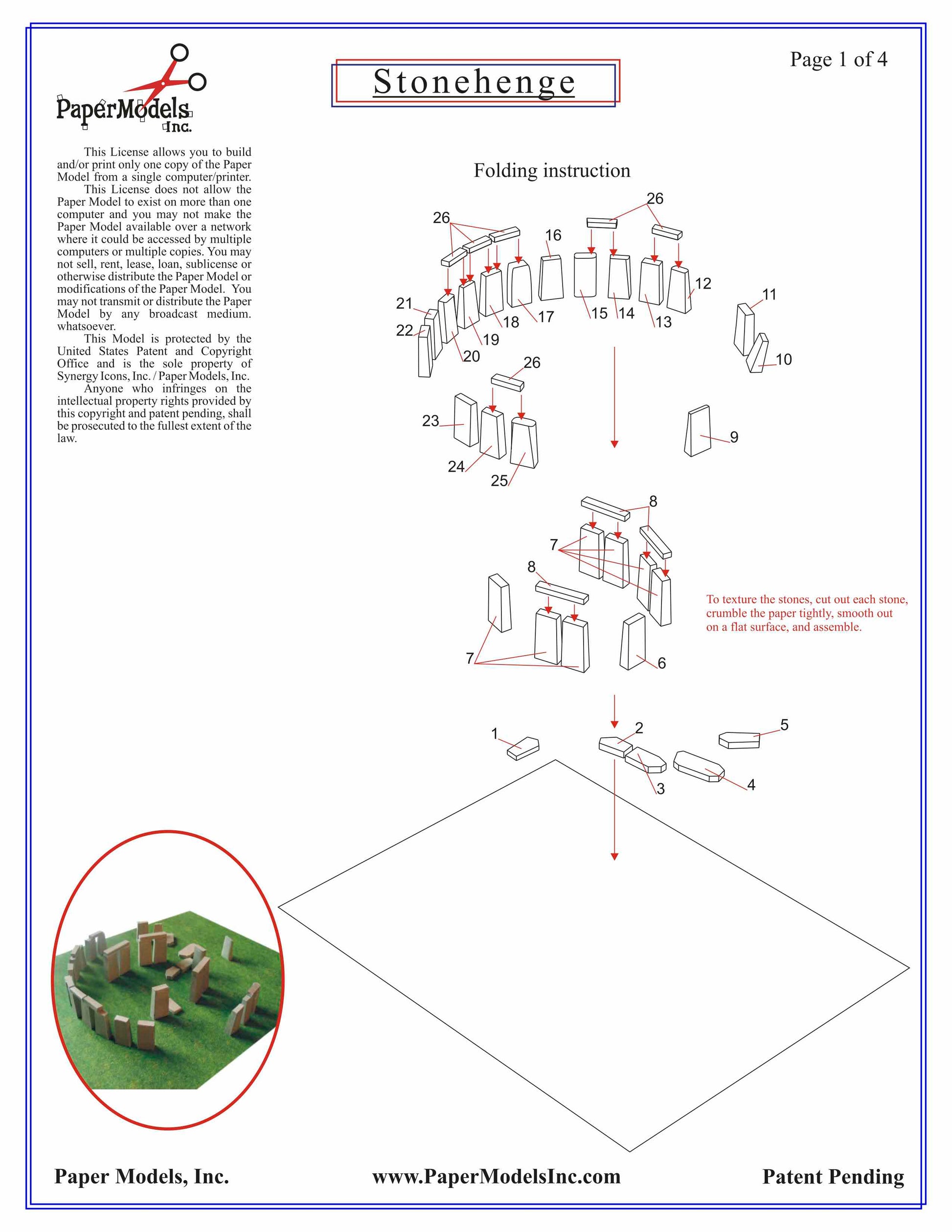Stonehenge - England - Paper Model Project Kit
Stonehenge - England - Paper Model Project Kit
- Fast Shipping
- Easy Returns
- 24/7 Support
No se pudo cargar la disponibilidad de retiro
🌟 Welcome to Paper Models Online – Your Shortcut to Academic Excellence! 🌟
Are you tired of stressing over last-minute school projects? Look no further! Paper Models Online is here to make your academic life a breeze.
🚀 Why Choose Us?
At Paper Models Online, we understand the pressure of looming deadlines and the desire for that coveted "A" grade. That's why we've crafted the perfect solution for you! Whether you're a student aiming for extra credit, a parent looking for quality time with your kids, or just someone in need of a break from the chaos, our paper models are your ticket to success!
💻 Instant PDF Download OR Pre-Printed & Shipped
You're in control! Choose from our instant PDF download, starting at just $9.95 for the 7"x10" size or $11.95 for the 10"x13" size.
Print it on your home or office printer using regular paper, or opt for the hassle-free pre-printed option. We'll ship it directly to your doorstep for a flat $5 fee via USPS First-Class Parcel, ensuring you get it in 1-3 days!
✂️ Easy Assembly, Maximum Impact
With just a pair of scissors, some glue, and an hour of your time, you can turn these paper sheets into stunning three-dimensional architectural replicas or complete science projects. The images on our website are real models made from our kits, and we even provide a history to help you craft an impressive report.
🎨 Unleash Your Creativity
Not into mission kits? No worries! Our models double as templates for your creative genius. Paint, trace, adjust sizes—your imagination is the only limit! Create a custom masterpiece that reflects your unique style and personality.
🛒 The Buying Process Made Simple
- Choose Your Size: 7"x10" or 10"x13"
- Choose Your Delivery: Instant PDF download or pre-printed and shipped
- Purchase Your Model: It's that easy!

📦 Typical Kit Sample
Each kit includes 8 to 18 pages, providing everything you need to bring the model to life. An "exploded view" guides you through assembly, and a complimentary history adds that extra touch for your report. Impress your teacher not just with creativity but also with your research skills!
Don't let deadlines stress you out. Choose Paper Models Online for your next school project, and let us be Your Best Way To Get An "A"! 🌟
.
 |
 |
 |
| Exploded View | Sample Pieces | Finished Model |
Free History For Your Report
Stonehenge
Stonehenge, located about eight miles from Salisbury in Amesbury, England, is a monument from the Bronze Age. It largely consists of a variety of stones carved from the earth that are arranged in a circle, set in a fashion that reflects the monument's prehistoric building. It is not known for sure when this monument was built, but archaeologists and scientists believe that it was somewhere between 2500 and 2000 BCE, however the ground surrounding the actual structures was first modified back in 3100 BCE. Part of the mystery surrounding Stonehenge is what it's original purposes were – and this is confusing even when looking at the actual name, “Stonehenge.” In the old English, “Stone,” of course, means “stone,” but scientists and scholars cannot agree rather “Henge” refers to “something hanging on a hinge” (like a door), or “Hencen,” meaning “gallow.” Back in the Medieval days of Europe (which came far after the building of Stonehenge), gallows were built very similar to how Stonehenge is built – with two supporting sides holding up a central beam.
© Copyright – Paper Models, Inc. – All Rights Reserved
Share
